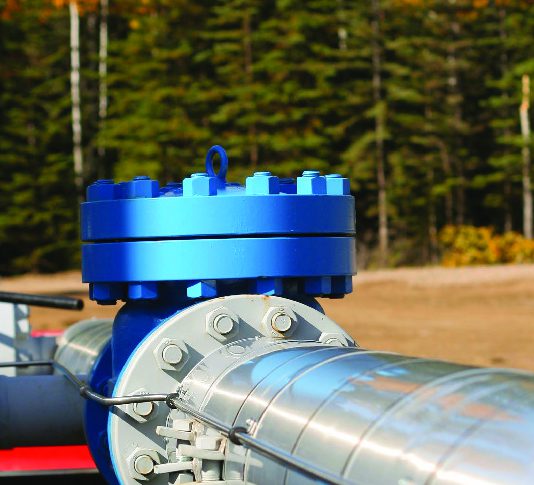Paul Driessen As President Trump downgrades the relevance of Obama era climate change and anti-fossil fuel policies, many environmentalists are directing attention to “sustainable development.” Like “dangerous manmade climate change,” sustainability reflects poor...
Environment
Improving Ontario’s Contaminated Site Remediation System
Ross McKitrick, Abdulrahman Khogali and Elmira Aliakbari “Brownfields,” or building sites contaminated by past users, need to undergo some level of remediation prior to their redevelopment. Ontario’s brownfield remediation rules underwent a major revision in 2011....
Blowing Hot Air on the Wrong Target? A Critique of the Fossil Fuel Divestment Movement in Higher Education
By 2015, students and faculty at more than 1,000 college and university campuses across the world (including nearly 30 in Canada) had pressured academic trustees and administrators to divest their institutions’ endowment holdings in publicly held fossil fuel companies...
Contrary to Rumours, There is No License to Pollute Canadian Waterways
In 2012, the Harper government replaced the old Navigable Waters Protection Act (NWPA) with a new Navigation Protection Act (NPA), aimed at updating and simplifying regulations governing transportation on inland waterways, sparking considerable controversy. Many...
Featured News
Trust is the Foundation of Authority
The heartbreaking death of Nathanael Spitzer, the cancer-stricken boy from Ponoka, exposed a most callous streak in Alberta’s medical bureaucracy. There is no forgiving how Alberta Health Services appallingly used a child’s death to promote yet more COVID-19 fear. ...
Apple’s “Security” Pitch Conveniently Protects the iOS-Android Duopoly
In October, Apple Inc. warned that draft rules from the European Union that would require the technology company to open up its mobile operating system to third-party apps would pose a security risk to its users. Expanding on comments already made by CEO Tim Cook, a...
From Greenpeace to Business, He is Making Waves
A co-founder and former member of Greenpeace, Moore is now the co-founder and chair of Greenspirit Strategies Ltd., a firm in B.C. focused on helping companies develop communication around sustainability. Moore says only now is the world starting to understand what being sustainable means.
Free Market Environmentalism
Over at Grist, there has been a discussion emerging about the relative merits of command-and-control regulation versus “free-market environmentalism” that is supported by secure property rights.
Before being shoved aside in the 1970s by the more politically attractive federal statute law, common law made it clear that no polluter had the right to impose unwanted costs on the owners of private property. Centuries of legal precedence affirmed that people had a legal right to have their property free from pollution. Upon examining the history of the common law, economists Roger Meiners and Bruce Yandleconcluded that the common law “can protect the environment more effectively and fairly than can congressional statutes and bureaucratic regulations.”
This article digs into the issue of transaction costs and to me that is the key of making a common-law, property-rights based model work.
McKitrick Opens Can of Whoopass on Earth Hour
Why it’s an ignorant and anti human ritual.
Is the World Getting Greener?
The red colors absolutely dominate indicating an increase in vegetation status
EPA To Regulate Harmful Emissions
In the United States, the EPA is proposing to regulate emissions of mercury and other toxic substances from coal and oil fired electrical plants. Grist has posted an article that discusses the background of this proposed regulation in more detail.
Proponents of the action argue that there is a technological capability to meet the new standards, the new standards are justified on a cost-benefit test, and the action protects human health and the environment (more detail here).
Interlake Water Woes
Over the last few years of wet weather, the Shoal Lakes have been expanding and flooding surrounding lands.
The lakes only need to rise 30 or 40 centimetres higher before they spill into Grassmere Drain, with unknown and potentially disastrous effects on downstream agricultural and residential communities, said Steve Topping, executive director of Manitoba Water Stewardship.
Germany – Is Environmentalism Working?
In the fight to protect the environment, it may be time to pause and ask oneself: what is really helping, and what isn’t?
Japan Radiation in Perspective
Comparing the Japan radiation exposure to other common exposures.
Separating the Battery from the Car
This week’s issue of The Atlantic contains an article outlining the plans of Better Place to roll out a system of swapping batteries in electric cars in Israel and Denmark. It will be interesting to see how their attempt will fare.
In the past, I have read critics contend that no one will want to participate in the system because of the risk of receiving a faulty battery. I suppose that is a concern, but on the other hand, there are services that sell you propane with exchangeable tanks instead of requiring the user to own their own tank. To me, the Better Place business model is just an extension of one that works in the propane sector.

